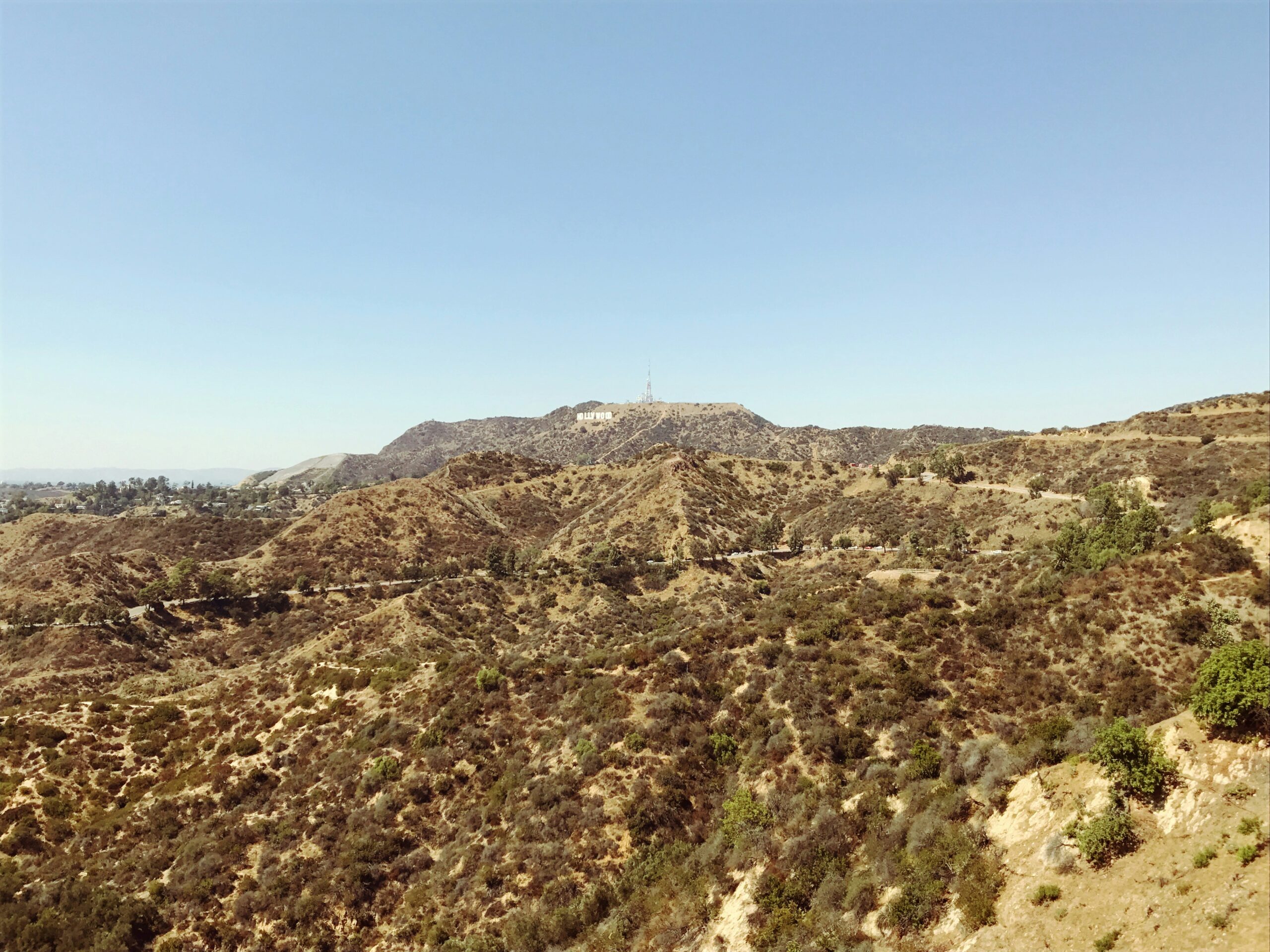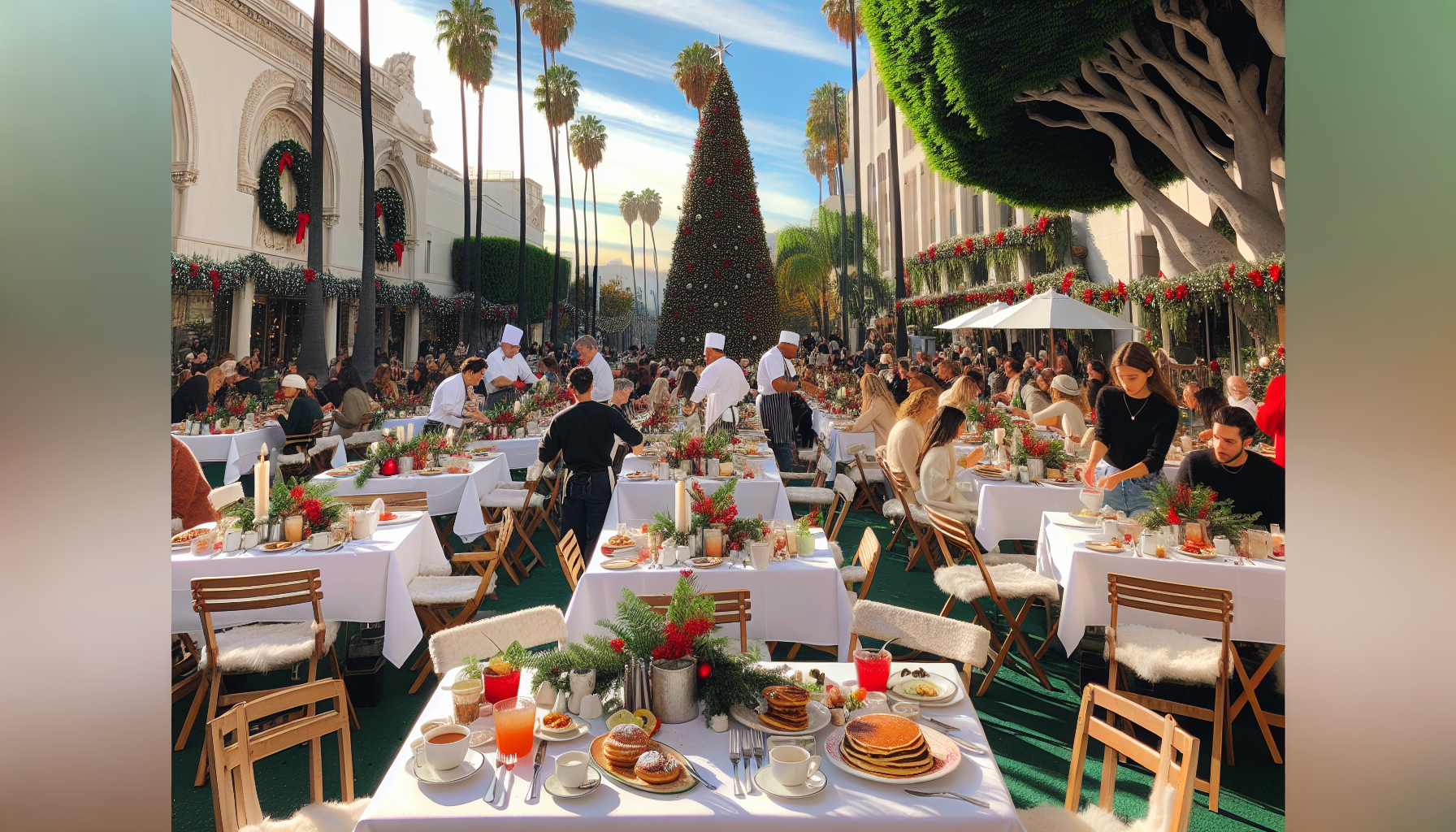Exploring the Los Angeles Museum of the Holocaust
When it comes to experiencing the history and impact of the Holocaust, the Los Angeles Museum of the Holocaust stands as a significant institution. As the oldest survivor-founded Holocaust museum in the United States, the museum offers a unique and powerful perspective on this tragic chapter of human history.
A Historical Perspective
The Los Angeles Museum of the Holocaust was established in 1961 by a community of Holocaust survivors and members of the Jewish community in Los Angeles. It holds the distinction of being the oldest survivor-founded Holocaust museum in the United States. This historical perspective lends a powerful authenticity to the museum’s exhibits and programs, allowing visitors to connect with the lived experiences of those who endured the Holocaust (Los Angeles Museum of the Holocaust, United States Holocaust Memorial Museum).
The Oldest Survivor-Founded Holocaust Museum in the US
The significance of the Los Angeles Museum of the Holocaust as the oldest survivor-founded Holocaust museum in the United States cannot be overstated. The vision and dedication of Holocaust survivors and the local Jewish community in establishing this museum have created a space that serves as a testament to the resilience and strength of those impacted by the Holocaust.
Through its exhibits, educational programs, and commemorative events, the museum upholds the memories of Holocaust survivors and ensures that the atrocities of the Holocaust are never forgotten. It provides a platform for survivors to share their stories and connects visitors with the profound historical legacy of this dark period in human history.
Visiting the Los Angeles Museum of the Holocaust offers an opportunity to gain a deeper understanding of the Holocaust and its lasting impact. It is a place of remembrance and education, where the stories of survivors are preserved and shared with future generations.
As we continue our exploration of the Los Angeles Museum of the Holocaust, we will delve into the educational programs, virtual field trips, commemorative initiatives, and the captivating exhibitions that make this museum an immersive and educational experience for all visitors.
Educational Programs at the Museum
The Los Angeles Museum of the Holocaust is not only a place of remembrance and reflection but also an educational hub that connects Holocaust survivors with students, fostering a deeper understanding of the history and lessons of the Holocaust. Through its various educational programs, the museum engages both the younger generation and students of all ages.
Connecting Holocaust Survivors with Students
One of the notable educational programs offered by the Los Angeles Museum of the Holocaust is the Generation to Generation program. This initiative plays a pivotal role in ensuring that the memories and lessons of the Holocaust continue to be shared. Through this program, Holocaust survivors have the opportunity to engage directly with students, sharing their personal stories and experiences. By hearing firsthand accounts, students develop a deeper empathy and understanding of the impact of the Holocaust (United States Holocaust Memorial Museum).
Engaging the Younger Generation
The Los Angeles Museum of the Holocaust is committed to educating the younger generation about the Holocaust’s history and the importance of tolerance and acceptance. The museum offers a range of educational programs that cater to different age groups and learning styles. These programs are designed to engage students in a comprehensive learning experience that goes beyond traditional classroom teachings.
One such program is the museum’s virtual field trips. These virtual experiences are designed for various grade levels and offer interactive activities, media presentations, and survivor testimonies. Students can explore the museum’s exhibits and learn about the Holocaust in a dynamic and engaging way, even from the comfort of their own classrooms. The virtual field trips provide an immersive experience that brings history to life, encouraging students to reflect on the past and draw connections to the present (Los Angeles Museum of the Holocaust).
In addition to virtual field trips, the museum offers classroom resources and survivor talks to further enhance students’ understanding of the Holocaust. Educators can access teaching guides, lesson plans, and primary source materials from the museum’s website. These resources provide educators with valuable tools to facilitate meaningful discussions and ensure accurate and comprehensive Holocaust education in their classrooms (Los Angeles Museum of the Holocaust).
By connecting Holocaust survivors with students and providing engaging educational programs, the Los Angeles Museum of the Holocaust aims to ensure that the memories of the Holocaust are passed down from generation to generation. Through these initiatives, the museum plays a vital role in shaping a more compassionate and informed society that values human rights and fights against bigotry and prejudice.
Virtual Field Trips and Online Resources
At the Los Angeles Museum of the Holocaust, you can now experience the museum from anywhere through their virtual field trips and online resources. This innovative approach allows visitors to engage with the museum’s exhibits and educational content, expanding the reach of the museum beyond physical visitors.
Experiencing the Museum from Anywhere
Through their virtual field trips, the Los Angeles Museum of the Holocaust provides an opportunity for distant audiences to explore their exhibits and learn about the history of the Holocaust. These virtual field trips are designed for various grade levels, offering interactive activities, media presentations, and survivor testimonies to engage students in a comprehensive learning experience about the Holocaust (Los Angeles Museum of the Holocaust).
By participating in a virtual field trip, you can immerse yourself in the museum’s exhibits and gain a deeper understanding of the Holocaust, World War II, and other genocides. The virtual experience recreates the physical space of the museum, allowing you to navigate through different sections and explore artifacts, photographs, and personal stories.
Expanding Reach Beyond Physical Visitors
In addition to virtual field trips, the Los Angeles Museum of the Holocaust offers a variety of online resources that can be accessed by anyone, anywhere. These resources include educational materials for teachers, survivor talks, and online exhibitions. Educators can find teaching guides, lesson plans, and classroom resources to help them teach their students about the Holocaust and World War II (Los Angeles Museum of the Holocaust).
The online exhibitions provide a comprehensive overview of the Holocaust, showcasing artifacts, photographs, and personal stories that shed light on this dark period in history. These digital initiatives make the museum’s resources and educational content accessible to a broader community beyond its physical location in Los Angeles (Los Angeles Museum of the Holocaust).
Whether you are a student, educator, or simply interested in learning more about the Holocaust, the Los Angeles Museum of the Holocaust’s virtual field trips and online resources allow you to explore and engage with the museum’s exhibits and educational content from the comfort of your own home. By leveraging technology, the museum is able to reach a global audience and ensure that the stories of Holocaust survivors are never forgotten.
Commemorating the Holocaust
The Los Angeles Museum of the Holocaust serves as a vital historical resource and memorial, dedicated to upholding the memories of Holocaust survivors and ensuring that the atrocities of the Holocaust are never forgotten. It serves as a commemorative space for the 6 million Jewish victims and millions of other victims of the Holocaust, allowing visitors to pay their respects and reflect on this tragic period in history.
Upholding the Memories of Holocaust Survivors
One of the primary missions of the Los Angeles Museum of the Holocaust is to honor those who perished and educate the public about the Holocaust. The museum achieves this by preserving and showcasing the testimonies and artifacts of survivors, ensuring that their stories are heard and their experiences are never forgotten. Through personal narratives, artifact-rich exhibits, and technology, the museum provides access to this history and allows visitors to connect on a personal level with the survivors’ stories.
The museum also offers educational programs and tours designed to align with California State’s curriculum and academic standards regarding Holocaust education. These programs are customized to fit the age level, prior knowledge, background, and interests of the students. By engaging young minds with the history of the Holocaust, the museum aims to foster empathy, understanding, and a commitment to combating hatred and prejudice in future generations.
Ensuring the Atrocities Are Never Forgotten
The Los Angeles Museum of the Holocaust plays a crucial role in documenting, preserving, and educating about the Shoah in order to combat hatred and prevent future genocides. By sharing the stories of Holocaust survivors and displaying artifacts that bear witness to the horrors of the Holocaust, the museum serves as a powerful reminder of the consequences of intolerance and discrimination.
Through its exhibits, events, and educational programs, the museum actively works to raise awareness and promote human rights. By learning from the past, the museum strives to create a better future, where the lessons of the Holocaust are heeded and the world stands united against acts of genocide and prejudice.
Visiting the Los Angeles Museum of the Holocaust provides individuals with an opportunity to honor the victims, learn from history, and make a personal commitment to ensuring that such atrocities are never repeated. It is a place for reflection, education, and remembrance, where visitors can deepen their understanding of the Holocaust and contribute to the ongoing fight against hatred and intolerance.
The Physical Space and Exhibitions
When visiting the Los Angeles Museum of the Holocaust, you will have the opportunity to explore a comprehensive overview of the Holocaust through its physical space and exhibitions. The museum features a range of artifacts, photographs, documents, and videotaped testimonies that provide a deep understanding of this tragic period in history.
A Comprehensive Overview of the Holocaust
The Los Angeles Museum of the Holocaust aims to educate the public about the events of the Holocaust and promote understanding and tolerance. Its permanent exhibitions offer a comprehensive overview of the Holocaust, showcasing artifacts, photographs, documents, and videos that provide a historical account of this devastating genocide. As mentioned on the museum’s website, these exhibitions include the “History of the Holocaust,” “The Generation After,” and the “Tree of Testimony” (Los Angeles Museum of the Holocaust).
By exploring these exhibitions, visitors can gain insight into the timeline, causes, and consequences of the Holocaust. The museum’s collection brings to life the experiences of Holocaust survivors, enabling visitors to connect with their stories on a personal level. It serves as a memorial to the victims and a testament to the resilience of the survivors.
Insight into the Holocaust and Its Impact
The Los Angeles Museum of the Holocaust provides a space for visitors to delve deeper into the Holocaust and its lasting impact on individuals and communities. The exhibitions offer insight into the atrocities committed during this dark period of history, shedding light on the human experiences and the magnitude of the Holocaust.
Through the artifacts, documents, photographs, and videos on display, visitors can gain a greater understanding of the Holocaust’s historical context, the lives affected, and the consequences for future generations. The museum’s aim is not only to ensure the events are never forgotten but also to encourage visitors to reflect on the lessons learned and the importance of promoting tolerance and respect.
Visiting the Los Angeles Museum of the Holocaust provides an immersive experience that encourages reflection, empathy, and a commitment to preventing future acts of hatred and discrimination. It serves as a reminder of the importance of preserving the memories of the Holocaust and educating future generations about this significant chapter in history.
By exploring the physical space and exhibitions of the Los Angeles Museum of the Holocaust, visitors can gain a comprehensive understanding of the Holocaust and its profound impact on humanity. It is a place of remembrance, education, and contemplation, offering a unique opportunity to engage with the history and legacy of the Holocaust.
Resources for Educators
The Los Angeles Museum of the Holocaust offers a range of resources to support educators in teaching about the Holocaust. These resources are designed to enhance classroom learning and provide educators with valuable tools to engage students in this important historical topic.
Teaching Guides and Lesson Plans
Educators can access teaching guides, lesson plans, and primary source materials from the Los Angeles Museum of the Holocaust’s website. These resources are carefully developed to align with California State’s curriculum and academic standards regarding Holocaust education. The guides and lesson plans cover various aspects of the Holocaust, including its historical context, the experiences of survivors, and the impact of this tragic event on society (Los Angeles Museum of the Holocaust).
By utilizing these teaching guides and lesson plans, educators can effectively incorporate Holocaust education into their classrooms. The materials provide a comprehensive framework for teaching about the Holocaust, offering historical information, discussion questions, and suggested activities. They help students develop a deeper understanding of the Holocaust, its causes, and its enduring significance.
Professional Development Opportunities
To further enhance educators’ knowledge and skills in teaching about the Holocaust and genocide, the Los Angeles Museum of the Holocaust provides professional development opportunities. These opportunities include workshops, seminars, and training sessions conducted by experts in Holocaust education.
By participating in these professional development programs, educators can deepen their understanding of the Holocaust and gain new teaching strategies to engage their students. The interactive nature of these programs allows educators to learn from experienced professionals, engage in discussions with peers, and explore innovative approaches to Holocaust education (Los Angeles Museum of the Holocaust).
Additionally, the Los Angeles Museum of the Holocaust offers student internships that provide hands-on experience in museum operations, research, and teaching about the Holocaust and genocide. These internships enable students to gain practical skills while contributing to the museum’s educational mission (Los Angeles Museum of the Holocaust).
By providing teaching guides, lesson plans, professional development opportunities, and student internships, the Los Angeles Museum of the Holocaust empowers educators to effectively teach about the Holocaust. These resources ensure that educators have the necessary tools and knowledge to engage students in meaningful discussions about this dark chapter in history.
Special Events and Programs
At the Los Angeles Museum of the Holocaust, special events and programs are an integral part of fostering discussions, raising awareness, and engaging the public in meaningful ways. These initiatives provide opportunities for visitors to delve deeper into the history of the Holocaust, its lessons, and its implications for contemporary society.
Fostering Discussions and Awareness
The Los Angeles Museum of the Holocaust hosts a variety of special events, workshops, and speaker series throughout the year. These events aim to facilitate conversations among visitors and experts, creating spaces for dialogue and reflection. By bringing together individuals from diverse backgrounds, these discussions foster a deeper understanding of the Holocaust and its impact on humanity. Through thought-provoking presentations and interactive sessions, participants gain insights into the historical context, survivor testimonies, and the lessons that can be learned from this dark period of history.
One notable program offered by the museum is the “Building Bridges” series, launched in 2020. This cross-cultural discussion series brings together leaders from diverse communities to engage in conversations about common social justice goals. By promoting dialogue and understanding, these discussions contribute to building bridges of empathy and tolerance in society.
Engaging the Public in Meaningful Ways
The Los Angeles Museum of the Holocaust offers a wide range of public programs designed to engage visitors of all ages. These programs include free admission for all students and California residents, self-guided tours with a free audio guide, and guided tours led by knowledgeable staff and docents. By providing access to the museum’s exhibits and resources, the museum ensures that the history of the Holocaust is accessible to all.
In addition to tours, the museum hosts conversations with Holocaust survivors, lectures, film screenings, and concerts. These events create opportunities for visitors to hear firsthand accounts, learn from experts, and engage with Holocaust history through multiple mediums. By combining educational content with cultural and artistic expressions, the museum offers a multi-dimensional experience that resonates with a diverse audience.
For educators, the Los Angeles Museum of the Holocaust provides valuable resources such as teaching guides and lesson plans. These resources are designed to align with California State’s curriculum and academic standards regarding Holocaust education. They offer educators the tools to facilitate meaningful discussions and engage students with this important historical topic. The museum also offers professional development opportunities for educators to enhance their knowledge and teaching strategies.
By hosting special events and programs, the Los Angeles Museum of the Holocaust goes beyond being a static institution. It actively engages the public, fosters discussions, and creates opportunities for learning, reflection, and empathy. These initiatives contribute to the museum’s mission of ensuring that the atrocities of the Holocaust are never forgotten and that its lessons continue to resonate with future generations.



